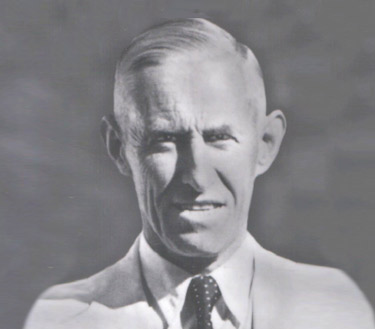Seabury, Richard W.

Richard W. Seabury
Boonton Rubber Company
Inducted 1977
Richard W. Seabury (1884 -1970) was General Manager of the Boonton Rubber Company in Boonton, New Jersey, founded by his father-in-law Edwin A. Scribner in 1898. Seabury subsequently acquired a controlling interest in the company. He then developed an early collaboration with inventor Leo Baekeland and was the first to commercialize Bakelite. For four years, he worked with Baekeland to improve the product and process and expand the demand for mold Bakelite products.
According to Jeffrey L. Meikle, Boonton bought molding compounds from the supplier (Bakelite) and produced parts for a product’s primary manufacturer, seeing an industrial production pattern still widely followed today. Success came when the New York Central Railroad ordered 100,000 third rail insulators of Bakelite to replace ceramic in electrified tracks.
Seabury brought the processing technology from hard rubber. Boonton “molded solid one-piece objects in hydraulic presses from mixtures of powered Bakelite A and chopped asbestos fibers or wood flour. With the application of heat and pressure to a cast-iron (later steel) mold, The Bakelite binder liquefied, impregnated, and surrounded the asbestos filler, circulated through the mold’s enclosed volume, and solidified as Bakelite C -with a film of pure resin curing last, against the mold’s surface, to yield a smooth uniform finish.”
With the success of Bakelite, Seabury clashed with Baekeland and battled the producer’s policies of granting price cuts to large clients like Westinghouse and setting up in-house molding operations. In the mid-1920s, Seabury continued to try to wrest price reductions for custom molders to make up for lost business.
Areas of Expertise:
Plastic processing, Management

